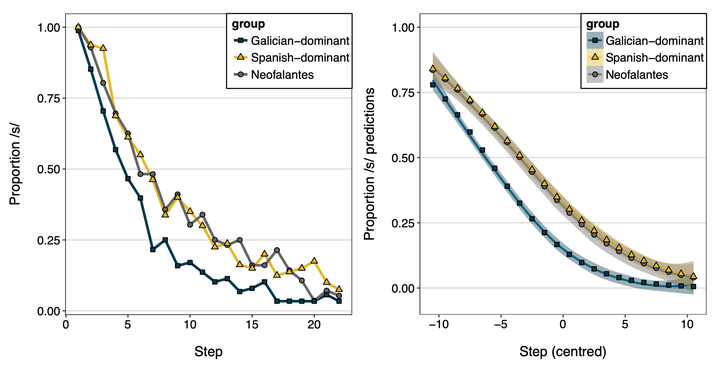The effects of language dominance switch in bilingual: Galician new speakers'' speech production and perception

Abstract
It has long been debated whether speech production and perception remain flexible in adulthood. The current study investigates the effects of language dominance switch in Galician new speakers (neofalantes) who are raised with Spanish as a primary language and learn Galician at an early age in a bilingual environment, but in adolescence, decide to switch to using Galician almost exclusively, for ideological reasons. Results showed that neofalantes pattern with Spanish-dominants in their perception and production of mid-vowel and fricative contrasts, but with Galician-dominants in their realisation of unstressed word-final vowels, a highly salient feature of Galician. These results are taken to suggest that despite early exposure to Galician, high motivation and almost exclusive Galician language use post-switch, there are limitations to what neofalantes can learn in both production and perception, but that the hybrid categories they appear to develop may function as opportunities to mark identity within a particular community.